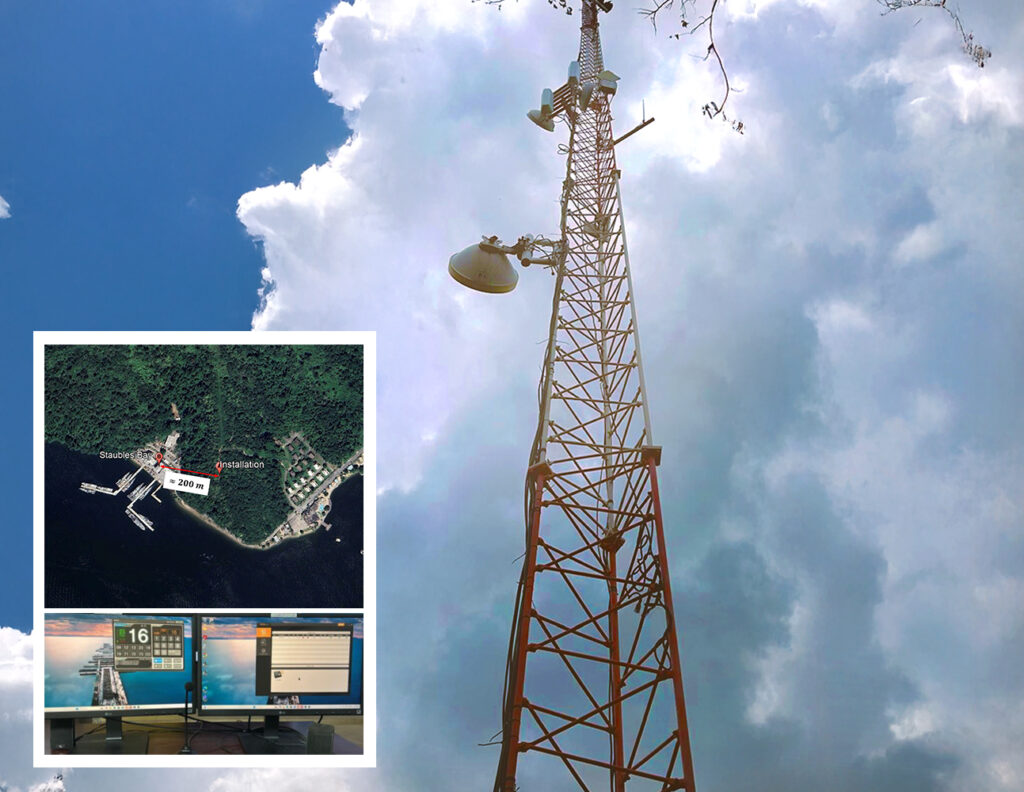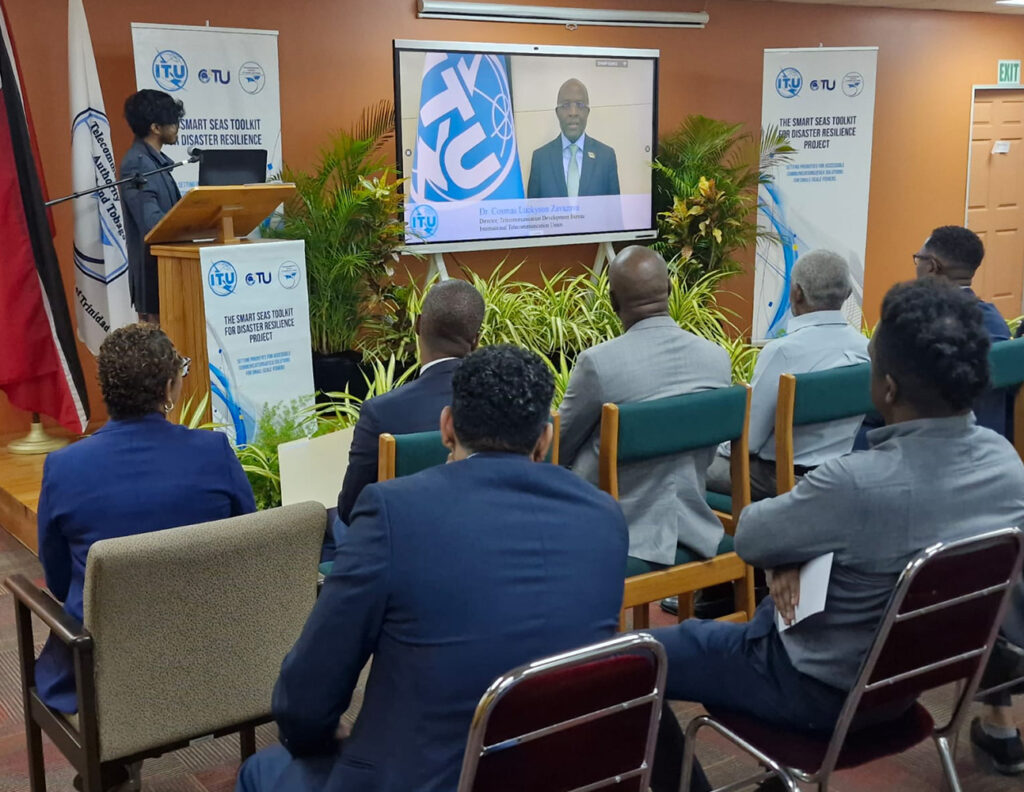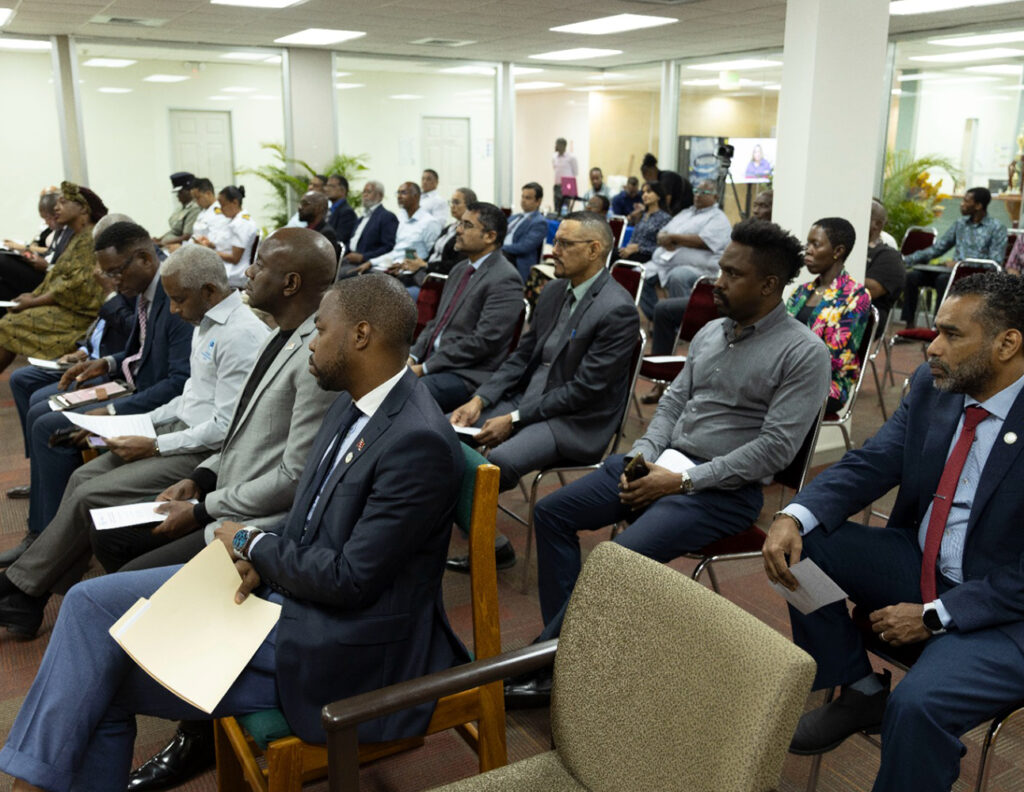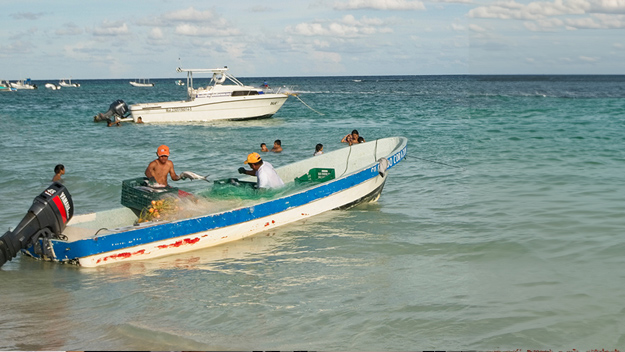
Installing life-saving VHF equipment in Trinidad and Tobago to ensure safety at sea for small-scale fishers
Fishing is an important component of Caribbean countries – including Trinidad and Tobago – as a source of employment and food. Fishers, who comprise over 90% of the Caribbean capture fisheries fleet, are highly vulnerable to a number of hazards at sea, such as adverse weather conditions, robberies and piracy.
That is why ensuring fishers’ safety at sea is a priority – any radio communications blind spots, or areas where the coast guard are not able to hear fishers in distress, can have catastrophic consequences.
The Smart Seas Toolkit for Disaster Resilience project, led by the ITU Telecommunication Development Bureau (BDT) in partnership with the Telecommunications Authority of Trinidad and Tobago and the Caribbean Telecommunications Union (CTU), and supported by the Government of Trinidad and Tobago, recognizes the critical role that information and communications technologies (ICTs) play in disaster resilience. Working together through the project, the partner agencies have been taking an active role in supporting emergency communications.
As part of the project, a very high frequency (VHF) radio system was delivered and installed to support the work of the Trinidad and Tobago Coast Guard, which serves as the maritime rescue co-ordination centre for other Caribbean countries, including Barbados, Grenada and Saint Vincent and the Grenadines.



VHF radio serves as an essential component of maritime communications, especially in areas where other communication methods might fail. By enabling reliable coverage, this procurement supports receiving distress calls and weather updates, as well as coordinating vessel movements.
“The radio that was installed provides coverage for the Gulf of Paria and the Chaguaramas Bay Area, which is the epicentre for maritime activity in Trinidad and Tobago, and one of the busiest and most diverse hubs in the entire Caribbean. Prior to this radio being installed, the Trinidad and Tobago Coast Guard was unable to provide VHF coverage in the Chaguaramas Bay, and we were therefore unable to receive distress calls from mariners in need,” said Lieutenant Commander Daniel Castagne, Commander Marine Ship Safety and Port Facility Security Unit, Trinidad and Tobago Coast Guard.
“Now that this radio is installed, we can provide adequate safety coverage for the Chaguaramas Bay and the entire Gulf of Paria. This solution is not only purpose-built, but future-ready; it is a platform that we plan to build on in the future, as we expand our capabilities for providing safety and security for all of our mariners,” said Lt Cdr Daniel Castagne.
This is an ITU Development #DigitalImpactUnlocked story
About the project
The Smart Seas Toolkit for Disaster Resilience project sets out to preserve the lives of highly vulnerable small-scale fishermen in the Caribbean through improved emergency communications at sea. The project is operational in Barbados, Grenada, St. Vincent and the Grenadines, and Trinidad and Tobago.
Visit the project page for more details.
